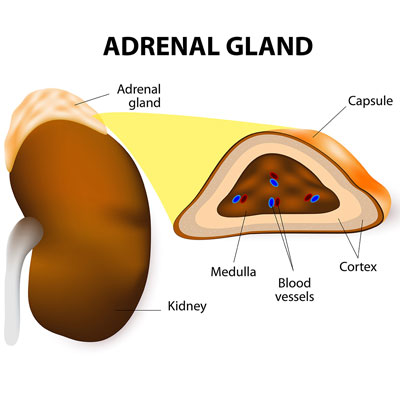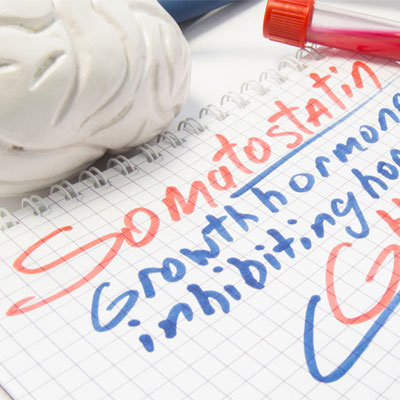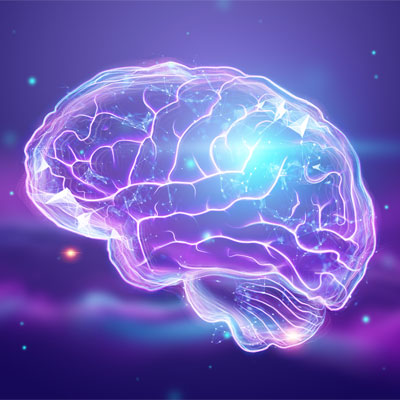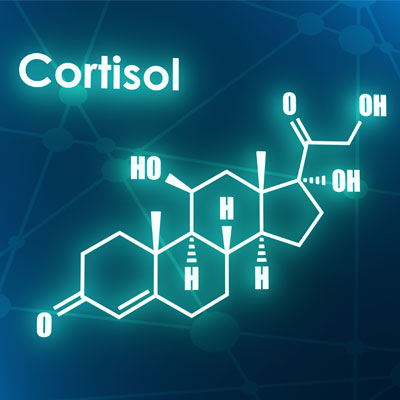Contents
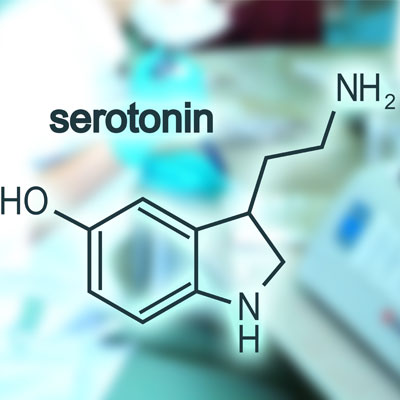
Even searching for a concise Trusted sourceSerotoninNational Cancer InstituteGo to sourceserotonin definition online can lead to confusion. Here are some ways to define serotonin: a chemical neurotransmitter found in platelets and blood serum that transmits messages, constricts blood vessels, and controls pain perception; the happy chemical that influences mood and well-being; a hormone found in the brain, digestive tract, pineal gland, and platelets.
The fact that a specific function of serotonin takes place outside the brain allows for its designation as a hormone. However, when involved in central nervous system roles, it acts as a neurotransmitter.
There is much to cover when discussing serotonin, and this report focuses on the following:
- What does serotonin do in the body and the brain
- How is serotonin production regulated
- What happens when you have low levels of serotonin
- The ways high levels of serotonin impact the body
- How to test serotonin levels
- How to balance serotonin levels in the body
Serotonin functions as both a neurotransmitter and a hormone depending where in the body it acts.
What Is Serotonin Hormone?
Serotonin is a chemical produced by nerve cells that contributes to the well-being of the body and mind. What is serotonin – hormone or neurotransmitter? That is the age-old question that has no easy answer. Serotonin function varies depending on the part of the body where it is found.
As a neurotransmitter, serotonin sends signals or messages between nerve cells. Serotonin hormone is also a precursor for Trusted sourceWhat is Melatonin?Sleep FoundationGo to sourcemelatonin , which is crucial to regulating the body’s internal clock and sleep-wake cycles.
Depending on the location of serotonin receptors, the functions of this neurotransmitter/hormone include:
- Blood Clotting: Serotonin released from blood platelets help form blood clots to heal a cut, wound, or tissue damage. In response to serotonin, vasoconstriction occurs, causing the tiny arteries (arterioles) to narrow. The result is reduced blood flow that allows for clot formation.
- Bone Density: Current research links elevated serotonin levels to reduced bone density.
- Digestion: Serotonin found in the gastrointestinal (GI) tract helps regulate bowel function, bowel movements, and aids in appetite reduction. Another benefit of serotonin is that the intestines increase production if something toxic or irritating is consumed to move it faster through the GI tract. Much of the serotonin we have is in the gut, hence the brain-gut connection. The gut has often been referred to as the second or “little” brain. There are more neurons in the gut than in the peripheral nervous system or spinal cord. That is why serotonin exerts such a powerful influence on digestive processes.
- Mood: Serotonin in the brain regulates mood and happiness. It is often called the “feel-good” chemical for its role in emotional well-being.
- Sexual Function: Serotonin can influence libido and sexual activity, depending on its levels.
It is essential to note that serotonin produced in the digestive system stays and functions there as it cannot enter the brain. Only serotonin produced in the brain can influence the emotional state.
Serotonin exerts its actions on the bones, mood, digestion, blood clotting, sexual functions, sleep, and more.
How Is Serotonin Hormone Regulated?
The regulation of serotonin hormone differs from many other hormones because it is primarily a neurotransmitter. However, due to its functions outside of the brain, it exerts its hormonal influence in other areas of the body.
Where is serotonin produced?
All serotonin used in the brain is produced there as it cannot cross the blood-brain barrier. In the brain, serotonin serves as a neurotransmitter, delivering signals throughout the central nervous system. After a neurotransmitter delivers its neural impulse, as in serotonin transmission, it is reabsorbed by the body. People who use SSRIs (selective serotonin reuptake inhibitors such as Zoloft and Prozac) to deal with depression prevent the resorption of serotonin, leading to higher synaptic levels of serotonin.
In other areas of the body, serotonin production takes place in the gastrointestinal tract (enteric nervous system) as well as in blood platelets. As much as 90% of the body’s serotonin production occurs in the enterochromaffin cells in the GI tract. After it moves out of these cells, serotonin enters the blood platelets for storage.
Serotonin production can be altered by the use of recreational drugs which can deplete serotonin levels and damage the nerves that contain serotonin.
Serotonin structure is a primary amino compound also called 5-hydroxytryptamine (5-HT) derived from tryptophan, an amino acid that enters the body via food or supplementation. Trusted sourceTryptophan deficiencyAARMGo to sourcetryptophan deficiency is often a cause for low levels of serotonin.
Serotonin production occurs in the brain, gastrointestinal tract, and in blood platelets.
What Happens If You Have Low Serotonin Hormone?
Having low serotonin levels can cause many problems for an individual – especially in the emotional realm. Serotonin deficiency is not a condition to take lightly, as it can increase the risk of suicidal behavior. The cause of a decline in brain serotonin levels can be too few serotonin receptors, poorly functioning receptors, the rapid breakdown of serotonin, or inhibited serotonin formation.
Blood sugar imbalance, nutritional deficiency, adrenal fatigue, birth control pills, hormonal imbalance, and long-term use of SSRIs can lead to low serotonin levels. Other common causes of serotonin deficiency include excessive alcohol or caffeine consumption, artificial sweeteners, poor diet, lack of sunlight, and excessive stress. Smoking, diet pills, inflammation, lack of exercise, and infections can also contribute to decreased serotonin levels.
Here are some low serotonin symptoms to be aware of so that you know when to seek medical support and guidance:
- Aggression or anger
- Anxiety
- Constipation or other digestive problems
- Depression
- Difficulty sleeping, insomnia
- Feeling overwhelmed or overly dependent on others
- Food cravings – starchy or sweet foods
- Impaired or decreased cognitive functions
- Increased pain sensitivity
- Low self-esteem
- Memory decline
- Migraines
- Tinnitus
Other disorders are also linked to decreased serotonin hormone levels including:
- Attention disorders
- Eating disorders
- Obsessive-compulsive disorder
- Panic disorders
- Post-traumatic stress disorder
- Seasonal affective disorder (SAD)
- Social phobias
Serotonin deficiency left untreated can increase the risk of suicide, Trusted sourceWhat Is Alzheimer’s Disease?Alzheimer’s AssociationGo to sourceAlzheimer’s disease , dementia, and heart disease. Symptoms associated with asthma, fibromyalgia, irritable bowel syndrome, and migraines may increase in severity due to low serotonin levels.
There are also gender-specific differences, such as:
Males – more prone to the following:
- ADHD
- Alcoholism
- Impulse control disorders
Females – more prone to the following:
- Anxiety
- Binge eating
- Carbohydrate cravings
- Depression
- Mood disorders
- Weight gain
Because serotonin is crucial to digestive health, serotonin imbalance can lead to irritable bowel syndrome in some people. IBS with constipation is often associated with low serotonin levels. There is also an increased risk of developing Trusted sourceWhat is fibromyalgia?Centers for Disease Control and PreventionGo to sourcefibromyalgia .
Low serotonin levels are often associated with depression and should not be taken lightly.
What Happens If You Have Elevated Serotonin Hormone?
Contrary to IBS with constipation, people who have diarrhea with IBS tend to have higher levels of serotonin, making their rectums more reactive.
Increased serotonin hormone levels may decrease feelings of arousal.
Because elevated serotonin levels influence bone density, it can result in an increased risk of osteoporosis.
A condition called serotonin syndrome occurs when medications used to increase serotonin activity cause mild side effects such as:
- Agitation
- Confusion
- Diarrhea
- Excessive sweating
- Headaches
- High blood pressure
- Muscle rigidity
- Pupil dilation
- Restlessness
- Shivering
- Sweating
- Twitching muscles
More severe symptoms are also possible, such as:
- High fever
- Irregular heartbeat
- Seizures
- Unconsciousness
The use of some herbal supplements, illicit drugs, and high doses of serotonin-raising medications or multiple serotonin-boosting drug usage can increase these risks. Some carcinoid tumors in the GI tract can also cause an increase in serotonin release. Serotonin syndrome can lead to excessive nerve activity.
High serotonin levels can result in potentially dangerous symptoms.
How Do You Test Serotonin Hormone?
Testing serotonin hormone levels is not as easy as with other hormones. Because serotonin is also a neurotransmitter, its brain levels are unable to be tested through blood analysis. In that case, it is often a physical examination and review of a person’s symptoms that can indicate neurotransmitter imbalance.
It is possible to test serotonin levels in the body with a blood test. Unlike other hormones that require fasting and early morning testing, serotonin blood collection can occur at any time. A normal blood range for serotonin is 101 to 283 ng/mL.
How to Balance Serotonin Hormone
In cases of high serotonin levels due to medication use, the discontinuation of the medication may restore normalcy to serotonin levels. It may be necessary to hospitalize a person dealing with severe symptoms of serotonin syndrome to control heart rate and lower serotonin levels.
If you have low levels and want to know how to increase serotonin production, the following methods may help:
Some foods contain natural serotonin, such as:
- Bananas
- Kiwis
- Nuts and seeds
- Pineapple
- Plums
- Salmon
- Soy
- Tomatoes
- Walnuts
Unfortunately, they may not be an effective way to increase serotonin because the serotonin in these foods cannot enter the brain. Since tryptophan is the precursor to serotonin, consuming foods high in that chemical may be beneficial. However, protein sources of tryptophan, such as turkey, can actually hinder and block the synthesis of serotonin, causing further decline after consuming protein.
The better options are:
- Cold-water fatty fish
- Dark chocolate
- Fermented foods
- Green tea
- High-fiber diet – healthy carbohydrates
- Turmeric (spice)
It is important to stick with low-sugar content dark chocolate rather than milk chocolate that has higher sugar content. Sugar triggers cortisol production, which can increase stress reactions and keep the brain and body on high alert for up to five hours.
The use of the following two supplements can help boost serotonin hormone levels:
- Tryptophan – directly supplementing with tryptophan can bypass the effects of serotonin lowering protein foods.
- 5-HTP – the body converts 5-HTP into serotonin as well as melatonin. It is a useful tool for dealing with the symptoms of depression and insomnia. Side effects are possible with 5-HTP and it is not for long-term use or mixture with antidepressants or SSRIs.
For more natural supplements that can increase the level of serotonin, try the following:
- Bacopa
- B complex vitamins
- Curcumin
- L-theanine
- Magnesium
- Omega-3 fatty acids
- Probiotics
- Rhodiola Rosea
- SAM-e
Increasing time spent outside in the sun can help boost not only serotonin levels but vitamin D, as well, which is beneficial for testosterone production and emotional well-being. Exercise is another excellent way to increase the secretion of essential hormones and neurotransmitters, including serotonin. Opting to exercise outdoors provides even greater benefits against fighting depression – even if it is only for a walk.
It is also important to turn off all electronic devices two hours before bedtime as they can reduce melatonin levels significantly, interfering with sleep, and decreasing critical hormone production. Getting no less than 6 hours of quality sleep each night is essential.
For some people, getting a massage is an excellent option because it decreases cortisol levels while increasing serotonin and dopamine production. It is vital that you learn to manage stress and control negative emotions that can hinder serotonin secretion.
Stress reducers such as yoga, acupuncture, meditation, laughter, and socializing with friends can all exert a positive influence on serotonin production.
Most of all, talking with a hormone specialist here at HGH Doctor medical clinic can help you find the right way to balance your hormones. Contact us today for a confidential consultation at no cost.
- Janet Best, Fredrick Nijhout, PhD, Michael Reed
- Kellie J White, PhD, Dr. Crystal Walline, Eric L Barker
- Paul R. Albert and Chawki Benkelfat
- Miles Berger, John A. Gray, and Bryan L. Roth
- James McIntosh Medically reviewed by Alan Carter, Pharm.D.
Serotonin synthesis, release and reuptake in terminals: A mathematical model
Serotonin Transporters: Implications for Antidepressant Drug Development
The neurobiology of depression—revisiting the serotonin hypothesis. II. Genetic, epigenetic and clinical studies
The Expanded Biology of Serotonin
What is serotonin, and what does it do?

